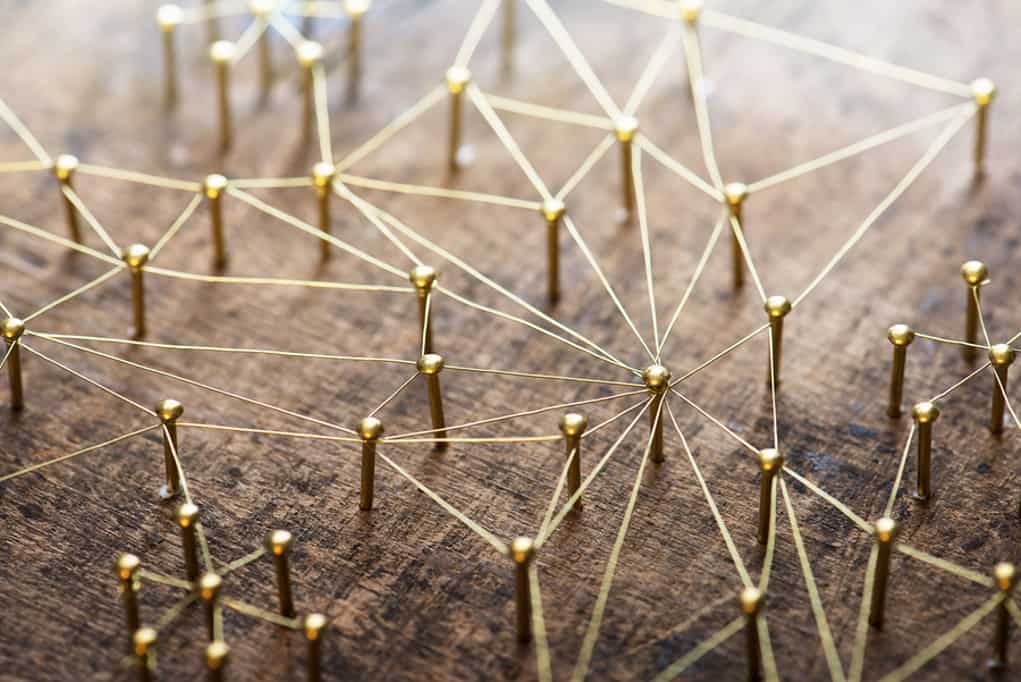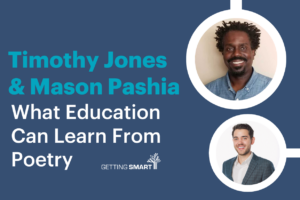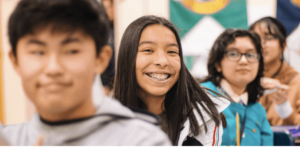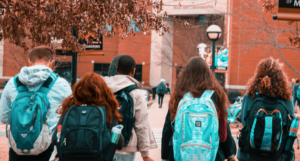Who You Know: Relationships are an Undervalued Asset for Students

By Mary Ryerse and Michelle Berkeley
Is it what you know or who you know that matters most? We believe both matter.
Often time, schools focus primarily on helping young people to develop their cognitive knowledge and – essentially what they know. However, schools sometimes neglect to invest properly in the development of our students’ social capital – who they know. We believe that all students need and deserve support for the development of their personal networks.
Our team recently dug into Julia Freeland Fisher’s awesome new book, Who You Know, and shared a few reflections of our own. It was not hard for each of us to think of someone who had helped us out along the way. However, most of these connections came through family or friends, and not through intentional strategies by educational institutions. Julia’s book helps make the case for schools to be proactive in this area so that there is an equitable approach that benefits all learners.
Julia is an education advocate, author and Director of Education at Christensen Institute. She stresses social capital as an equally important force in the opportunity equation for today’s students. In her recently published book, Who You Know: Unlocking Innovations That Expand Students’ Networks, and in a recent podcast interview with us, Julia shares the current data on young people’s access to relationships and networks, expands on the opportunities for schools to improve their students’ access to caring adults and mentors and outlines three types of social capital innovation.

The Importance of Relationships
In the book, Julia highlights some of the little-known truths about the state and quality of relationships in the lives of today’s students and highlights the disparities by income quartile in the data below. It’s not surprising that there are real gaps in students’ access to informal mentors. Even more alarming is that one in three students grow up without an identified mentor at all.
One theme throughout the book is that relationships are an undervalued asset and there are real consequences that can result from relationship gaps, such as developing a sense of hopelessness and dropping out of school.
Julia believes in the benefits of all kinds of connection, from deeper, caring connections to looser, supportive connections. She explains the sociological notion of the “strength of weak ties” and sees opportunity in applying this concept that acquaintances, or “weak ties,” can be more likely to open new doors and connect us to new information and opportunities to the lives of young people. Investments in boosting students’ access to connections like these can serve to take the chance out of the social capital equation.
Opportunities for High Schools to Better Support Network Development
When we think about the question “What can be done?” There are several changes to system and school design that can increase student access to vital relationships.
- Focus on the “network of care.” Develop a system for identifying each student’s network of care and then have responses in place to leverage existing networks or provide access to new networks.
- See the school system in terms of “slots” in which a student can learn. Unbundle the idea that students can only learn in an in-school course and expand the places and ways in which a student can learn, and consequently increase the amount of people to which the student is exposed.
- Incorporate project-based learning. Projects provide a great opportunity for industry experts have direct face-time with students.
- Expand students’ access through advisory. Put students in relationships with more people who can provide guidance and advice. We think advisory systems are awesome.
- Explore opportunities for change in school design. Offer credit for informal and out of school learning and other extended learning opportunities. Make use of infrastructure tools (e.g. LRNG.org) that can help connect students to people and learning experiences.
Three Types of Innovation for Social Capital
Julia identifies three ways schools can strive towards improved social capital for their students.
- Fully Virtual. These are relationships that are initiated and conducted in a fully online environment. Many apps, such as Nepris, bring virtual mentors into a classroom. Julia warns that treating these virtual relationships as a surrogate creates a gap in students forming authentic connections that will be beneficial to them down the line.
- Online Connecting Offline. There are many platforms that can simplify the logistics and lift the barriers of putting students in touch with more adults in their community. CommunityShare is a resource for teachers to find experts and guest speakers, and ImBlaze, from Big Picture Learning, connects youth to local work-based learning.
- Integrated Student Supports. These are school-initiated connections that strengthen the network of care surrounding a student. Many schools are doing well at providing wrap-around youth and family services, but Julia believes the best ones are those that keep teachers in the loop, like one program called City Connects.
With commitment from schools to integrate student support models and technologies, these ideas can turn into real action steps towards expanding student networks and improving student outcomes, and ultimately towards what Julia envisions as a more “networked society, labor market and life.”
For more, see:
- Why You Need Social Capital and How Schools Can Help
- The Social Side of Opportunity, an excerpt of Who You Know Chapter One
- Expanding Students’ Networks, an interview with Julia Freeland Fisher
Michelle is a Consultant at Getting Smart and a Licensed Professional Counselor. She advocates for students to develop skills to be able to transition successfully from high school to college and college to career. You can connect with Michelle on Twitter @micheberkeley.
Stay in-the-know with all things EdTech and innovations in learning by signing up to receive the weekly Smart Update.





0 Comments
Leave a Comment
Your email address will not be published. All fields are required.